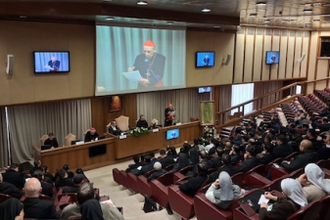Food Safety

Leela Ramdeen
At the end of a week in which the Telegraph has reported that Boris Johnson has given in to President Trump's demand that the UK accept food produced to the US's lower welfare standards, (no longer following EU ban on hormone-fed beef, chlorinated chicken etc) our correspondent Leela Ramdeen writes:
Sunday, June 7, is World Food Safety Day. The theme is: 'Food safety, everyone's business'. During this COVID-19 pandemic, it's important for people to practice good hygiene practices, including in food production and consumption. The virus can be transmitted among workers in locations and facilities where food is produced, processed, packaged, and sold. Standard Operating Procedures should be in place to minimise possible contamination. Researchers have identified more than 250 foodborne diseases; leading to approx 420,000 deaths annually worldwide.
As the UN states: "Food safety is the absence -- or safe, acceptable levels -- of hazards in food that may harm the health of consumers. Food-borne hazards can be microbiological, chemical or physical in nature and are often invisible to the plain eye: bacteria, viruses, or pesticide residues are some examples. Food safety has a critical role in assuring that food stays safe at every stage of the food chain - from production to harvest, processing, storage, distribution, all the way to preparation and consumption.
"With an estimated 600 million cases of foodborne illnesses annually, unsafe food is a threat to human health and economies, disproportionally affecting vulnerable and marginalised people, especially women and children, populations affected by conflict, and migrants. An estimated three million people around the world -- in developed and developing countries -- die every year from food and waterborne disease. Food is the starting point for our energy, our health and our well-being. We often take for granted that it is safe, but in an increasingly complex and interconnected world where food value chains are growing longer, standards and regulations are that much more important in keeping us safe...Food safety is a shared responsibility between governments, producers and consumers...Safe food contributes to economic prosperity, boosting agriculture, market access, tourism and sustainable development."
Food safety is linked to access to clean water and sanitation. For a variety of reasons, including crumbling pipes/infrastructure, access to clean water throughout TT remains a forlorn dream for many. This puts lives at risk, and it's the poor who suffer most. UNDP's 2019 report states: "Safe and affordable drinking water for all by 2030 requires we invest in adequate infrastructure, provide sanitation facilities, and encourage hygiene. Protecting and restoring water-related ecosystems is essential." Globally, over 800 million people lack basic services.
"Food safety is of paramount importance for public health and food security..." (UNDP). The UN World Food Programme estimates that 14 million people in Latin American and the Caribbean could experience severe food insecurity this year due to COVID-19. Covid-19 has impacted adversely on e.g. agriculture, manufacturing, incoming shipments of food. When will we prioritise agriculture in TT to promote food security? I agree with Agriculture Minister Rambharat's suggestion that people replace some "unhealthy" imported foods with more locally grown fruits and vegetables. But as agriculture economist, Omardath Maharaj, said there is a need for serious development policy and planning in agriculture. It's time to displace imported food, where necessary, with locally produced food. What has been heartening during this lockdown period is the fact that more people are planting their own kitchen gardens.
Food safety, food security, safe and nutritious food supply, and wellness (health) are linked. As Harvard School of Public Health states: " eating a healthy diet, being physically active, managing stress, and getting enough sleep are critical to keeping our immune system strong." And climate change must be taken into consideration in any discussion about food safety/security. The overall finding of the US Global Change Research Program (USGCRP) report: "Climate Change, Global Food Security, and the US Food System" is that "climate change is very likely to affect global, regional, and local food security by disrupting food availability, decreasing access to food, and making utilisation more difficult." The report "focuses on some of the less reported aspects of food security, specifically, the impacts of climate change on food safety, nutrition, and distribution in the context of human health...Systems and processes related to food safety, nutrition, and production are inextricably linked to their physical and biological environment".
Food poisoning, particularly in our tropical context, continues to be an issue to be considered when focusing on food safety. Follow the following simple tips to avoid food poisoning. See the Government website: http://news.gov.tt/. The tips are elaborated under the following headings: 1. Keep clean. 2. Separate raw and cooked. 3. Cook thoroughly. 4. Keep food at safe temperatures. 5. Use safe water and raw materials.
Food safety is everyone's business! Let's strengthen our food safety culture.
Leela Ramdeen is Chair of the Catholic Commission for Social Justice in the Archdiocese of Port of Spain, Trinidad & Tobago, (CCSJ) and Director of CREDI


















